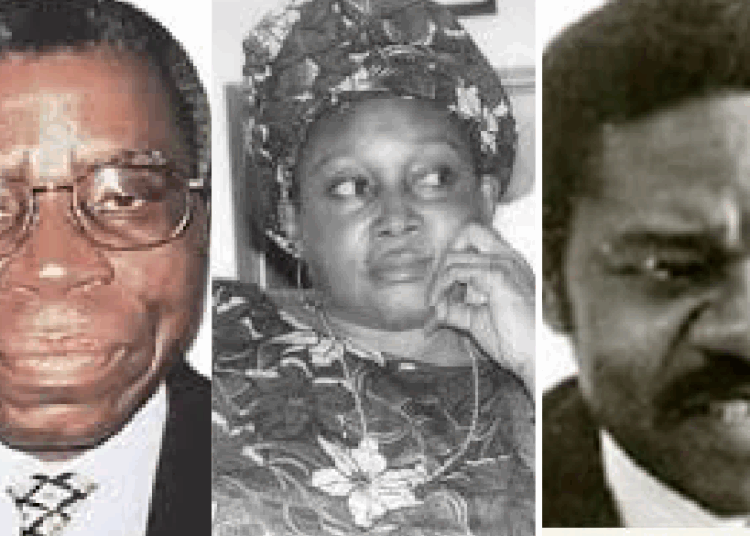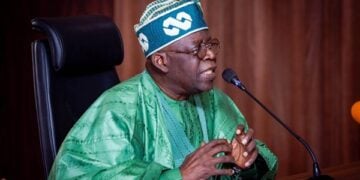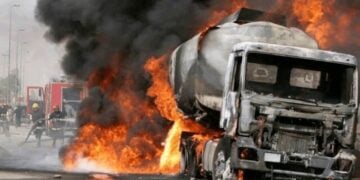After over three decades, there are rising calls for a probe and prosecution of the suspected killers of some prominent Nigerians during the military regimes and in the administration of former President Olusegun.
Among the cases the agitators want the President Bola Ahmed Tinubu administration to reopen are that of the murder of Kudirat, wife of the late winner of the annulled June 12, 1993 presidential election, Moshood Abiola; former minister of power and attorney-general of the federation, Chief Bola Ige (SAN); a renowned journalist and one of the founding editors of Newswatch magazine, Mr. Dele Giwa; an investigative journalist, Bagauda Kaltho and 79-year-old nationalist and businessman, Alfred Rewane.
In separate interviews with LEADERSHIP Sunday, some notable lawyers said President Tinubu, who was part of the struggle for the actualisation of the June 12 election, has no reason not to unmask the killers of Kudirat and others.
Two days after the celebration of this year’s Democracy Day on June 12, Nobel Laureate, Prof. Wole Soyinka, urged Tinubu to investigate the unresolved murders of prominent Nigerians, including Dele Giwa, Kudirat Abiola, and Bola Ige, to end the long-standing cases.
In the interviews with our correspondent, the lawyers described it as shameful that 30 years later, the killers of these prominent Nigerians were not brought to justice.
One of the lawyers, Abdul Balogun (SAN), lamented that successive governments lacked the willpower to unravel the murder of these Nigerians.
He said, “President Tinubu, being a part of the struggle that led to the restoration of democratic government in the country in 1999, has no excuse not to find the killers of these people.
“It’s a shame that 30 years later, we are yet to get a clue on how these people were murdered. The President should act swiftly and ensure those behind the murders are fished out and made to face the consequences of their actions,” he said.
A constitutional lawyer, Seth Akpofure, also called for the immediate investigation and prosecution of those involved.
He said that’s the only way to give justice to the families of those who lost their loved ones during the struggle.
“We cannot continue to pretend as if all is well. How can we as a nation fail to get justice for the families of those who lost their lives in the struggle for a better Nigeria?
“It means Nigeria has failed them and their families,” he said.
Similarly, an Abuja-based lawyer, Francis Osekwe, commended the president for the National Honours conferred on those who participated in the June 12 struggle, but added that the president can do more or even better.
Osekwe said, “The National Honour is a good move, but Nigerians still believe more could have been done for them by ensuring that those who were involved in their killings are brought to book.
“We can’t pretend not to know some of these people, but I think the political will isn’t just there to go after them; otherwise, I don’t see any reason why the government will find it difficult to fish out the perpetrators of the act.”
At the Office of the Attorney-General of the Federation (OAGF), a top official told LEADERSHIP Sunday that the probe and prosecution of all those involved in the murder cases were still open.
The official, who sought anonymity because he was not authorised to speak on the issue, said the AGF would act once the president asked it to.
He said, “The president is the country’s chief executive officer who appoints the AGF into office. The AGF will not have a choice once he is asked to act.”
Kudirat was killed on June 4, 1996, in Lagos, during the struggle for the actualisation of the June 12 presidential election.
The deceased and her driver were shot at from close range by unknown assailants near her home in Lagos during the regime of the late head of state, Gen. Sani Abacha.
She died later in the hospital while the driver was wounded.
Similarly, Bola Ige, a former governor of old Oyo State and also a former minister of power under former President Olusegun Obasanjo’s administration, was killed on December 23, 2001, in his home in Ibadan.
Dele Giwa was killed by a parcel bomb in his home at Ikeja, Lagos, while in his study with Kayode Soyinka, on Sunday, October 19, 1986. The assassination occurred two days after he had been interviewed by State Security Service (SSS) officials.
Giwa was a vocal critic of the regime of former military president, Gen. Ibrahim Babangida.
Two days before the incident, a senior official of the Directorate of Military Intelligence had accused Giwa of illegally importing and stockpiling arms and ammunition to stage a socialist revolution in Nigeria.
Disturbed by the allegation, Giwa briefed his lawyer, the late Chief Gani Fawehinmi (SAN).
Bagauda Kaltho, a journalist known for his fearless reporting during the military era, disappeared between late 1996 and early 1997 while pursuing a sensitive story.
For years, the circumstances surrounding his disappearance were the subject of controversy, conspiracy theories, and conflicting reports.
Pa Alfred Rewane was murdered on October 6, 1995, at his residence in Ikeja, Lagos. He was suspected to be the financier of National Democratic Coalition (NADECO), which spearheaded the fight for Abiola’s mandate.
On the day he was said to have been murdered, five men in a Peugeot 504 car came to the premises of the 79-year-old nationalist and shot him.





